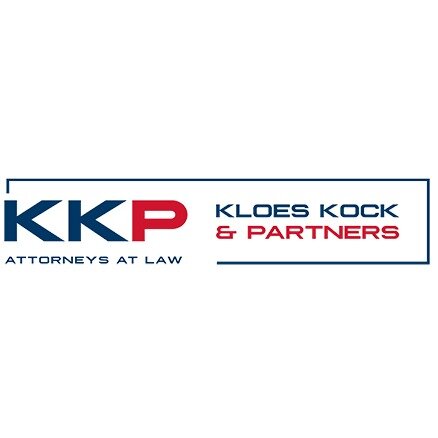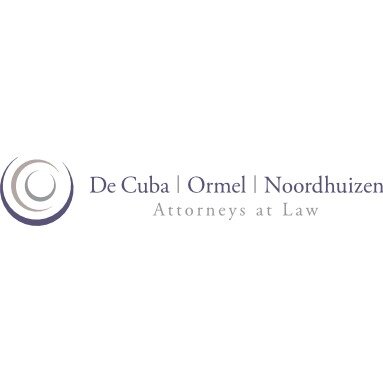Best Public-Private Partnerships (PPP) Lawyers in Aruba
Share your needs with us, get contacted by law firms.
Free. Takes 2 min.
Or refine your search by selecting a city:
List of the best lawyers in Aruba
About Public-Private Partnerships (PPP) Law in Aruba
Public-Private Partnerships, commonly referred to as PPPs, are collaborative agreements between governmental entities and private sector companies for the purpose of financing, constructing, and operating projects that would traditionally be delivered by the public sector. In Aruba, PPPs have increasingly gained popularity as a means of developing key infrastructure such as transportation, utilities, healthcare, and tourism facilities. These partnerships are designed to harness private sector expertise and investment while ensuring that public interests are met. The legal framework surrounding PPPs in Aruba aims to balance commercial incentives with regulatory oversight, ensuring that projects are delivered efficiently and in the public interest.
Why You May Need a Lawyer
Engaging in a Public-Private Partnership in Aruba involves complex legal, regulatory, and commercial arrangements. Seeking legal advice is crucial in several scenarios, such as:
- Drafting or negotiating PPP contracts or related agreements
- Assessing land use, zoning, or environmental permissions for new projects
- Complying with Aruban procurement and tendering regulations
- Structuring joint ventures or consortiums with local and foreign entities
- Understanding risk allocation between public and private stakeholders
- Securing project financing or managing cross-border transactions
- Managing disputes, claims, or contract termination situations
- Ensuring adherence to reporting, compliance, and transparency standards
A qualified lawyer can help protect your interests and guide you through each phase of a PPP project, from initial bidding through to project delivery and operation.
Local Laws Overview
Aruba has established regulatory frameworks and procedures to ensure that PPP projects are executed transparently and efficiently. Key aspects of local laws relevant to PPPs in Aruba include:
- Procurement Laws: Public tenders are governed by specific legislation to ensure fair competition and the transparent awarding of contracts. Foreign and local companies are often invited to tender, subject to public procurement rules.
- Government Oversight: Several government bodies oversee PPP processes, including the relevant Ministry, the PPP unit (if established), and audit institutions, helping to ensure accountability throughout all project phases.
- Contractual Framework: PPP agreements are legally binding and commonly set out detailed obligations regarding construction, financing, operations, maintenance, and risk sharing.
- Environmental and Land Use Regulations: PPP projects must comply with local zoning, environmental impact assessment, and permitting rules, designed to safeguard Aruba’s environment and heritage.
- Dispute Resolution: Contracts often specify mechanisms for resolving disputes, such as arbitration or mediation, in addition to access to local courts.
It is essential for parties involved in PPPs to understand and adhere to these legal requirements to ensure project success and avoid regulatory pitfalls.
Frequently Asked Questions
What is a Public-Private Partnership (PPP) in Aruba?
A PPP in Aruba is a structured collaboration between government entities and private companies to finance, build, and manage projects that benefit the public, such as roads, schools, and utilities.
Which government bodies oversee PPPs in Aruba?
Oversight usually involves the responsible Ministry for the sector of the project, with additional roles for public procurement agencies and financial supervisory bodies.
Are foreign companies allowed to participate in PPPs?
Yes, foreign companies can participate in PPP projects, provided they comply with local procurement laws and partner with local entities where required.
How are PPP projects awarded in Aruba?
Most PPP projects are subject to public tender and competitive bidding to ensure transparency, value for money, and fair competition.
What kinds of projects are suitable for PPPs?
Common PPP projects in Aruba include transportation infrastructure, water and energy utilities, social housing, health facilities, and tourism development.
What are the key risks in PPP agreements?
Risks include construction delays, cost overruns, regulatory changes, environmental compliance, and performance failures. The agreement will typically allocate these risks between the public and private partners.
Do PPP projects require environmental permits?
Yes, PPP projects in Aruba must adhere to environmental laws and secure all necessary permits and approvals before commencement.
How is project financing arranged in PPPs?
Project financing can come from a mix of private investment, bank loans, and in some cases, government subsidies or guarantees depending on the structure of the PPP.
What happens if disputes arise during a PPP?
Dispute resolution is typically governed by mechanisms outlined in the PPP contract, such as negotiation, mediation, arbitration, or litigation in local courts.
Why should I consult a lawyer before entering a PPP?
A lawyer ensures you understand your rights, obligations, and risks, helps draft and negotiate terms, and safeguards your interests throughout the project lifecycle.
Additional Resources
If you are considering participation in a PPP project or need legal advice, the following Aruban resources and organizations can be helpful:
- Government of Aruba - Ministry of Infrastructure: Responsible for overseeing infrastructure projects and potential PPP opportunities.
- Department of Economic Affairs, Commerce and Industry: Offers guidance on business and investment regulations, including PPP opportunities for foreign investors.
- Aruba Chamber of Commerce and Industry: Provides support to local and international businesses engaging in PPP projects.
- Legal Bar Associations: Professional organizations that can refer you to qualified lawyers with expertise in PPP and related legal areas.
Next Steps
If you are intending to engage in a Public-Private Partnership in Aruba or need legal assistance with an existing PPP project, consider the following steps:
- Outline the specifics of your project or query, including any documents or agreements involved.
- Contact a reputable lawyer or law firm specializing in PPP and infrastructure projects in Aruba.
- Schedule a consultation to discuss your goals, concerns, and the legal requirements applicable to your situation.
- Work with your lawyer to ensure that all aspects of the PPP, from bidding to contract negotiation and compliance, are professionally managed.
- Remain proactive about ongoing legal obligations, reporting, and communication with all project stakeholders.
Professional legal advice is crucial for navigating the complexities of PPPs and protecting your interests throughout the project lifecycle.
Lawzana helps you find the best lawyers and law firms in Aruba through a curated and pre-screened list of qualified legal professionals. Our platform offers rankings and detailed profiles of attorneys and law firms, allowing you to compare based on practice areas, including Public-Private Partnerships (PPP), experience, and client feedback.
Each profile includes a description of the firm's areas of practice, client reviews, team members and partners, year of establishment, spoken languages, office locations, contact information, social media presence, and any published articles or resources. Most firms on our platform speak English and are experienced in both local and international legal matters.
Get a quote from top-rated law firms in Aruba — quickly, securely, and without unnecessary hassle.
Disclaimer:
The information provided on this page is for general informational purposes only and does not constitute legal advice. While we strive to ensure the accuracy and relevance of the content, legal information may change over time, and interpretations of the law can vary. You should always consult with a qualified legal professional for advice specific to your situation.
We disclaim all liability for actions taken or not taken based on the content of this page. If you believe any information is incorrect or outdated, please contact us, and we will review and update it where appropriate.
Browse public-private partnerships (ppp) law firms by city in Aruba
Refine your search by selecting a city.











